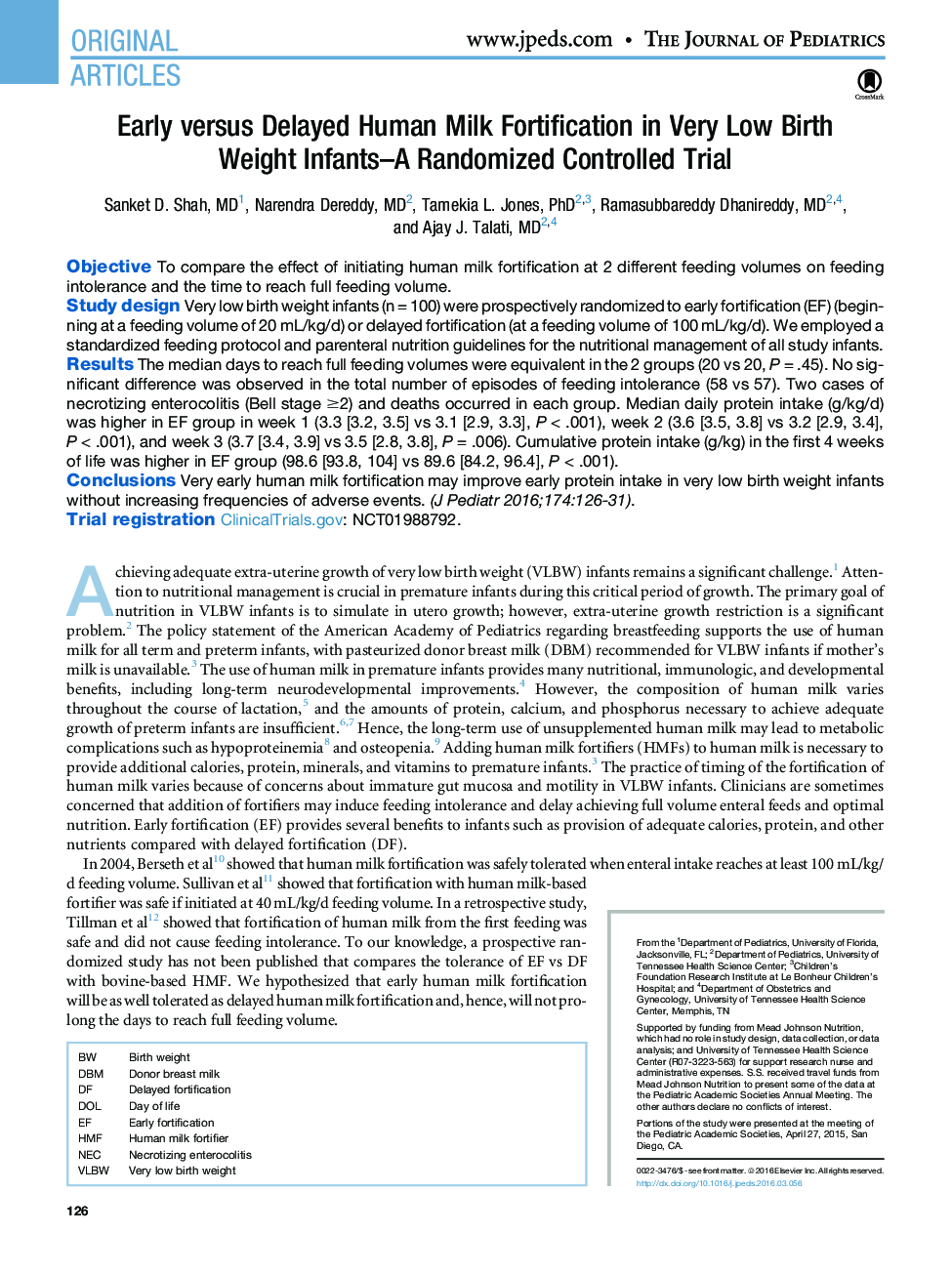| Article ID | Journal | Published Year | Pages | File Type |
|---|---|---|---|---|
| 6218913 | The Journal of Pediatrics | 2016 | 7 Pages |
ObjectiveTo compare the effect of initiating human milk fortification at 2 different feeding volumes on feeding intolerance and the time to reach full feeding volume.Study designVery low birth weight infants (n = 100) were prospectively randomized to early fortification (EF) (beginning at a feeding volume of 20 mL/kg/d) or delayed fortification (at a feeding volume of 100 mL/kg/d). We employed a standardized feeding protocol and parenteral nutrition guidelines for the nutritional management of all study infants.ResultsThe median days to reach full feeding volumes were equivalent in the 2 groups (20 vs 20, P = .45). No significant difference was observed in the total number of episodes of feeding intolerance (58 vs 57). Two cases of necrotizing enterocolitis (Bell stage â¥2) and deaths occurred in each group. Median daily protein intake (g/kg/d) was higher in EF group in week 1 (3.3 [3.2, 3.5] vs 3.1 [2.9, 3.3], P < .001), week 2 (3.6 [3.5, 3.8] vs 3.2 [2.9, 3.4], P < .001), and week 3 (3.7 [3.4, 3.9] vs 3.5 [2.8, 3.8], P = .006). Cumulative protein intake (g/kg) in the first 4 weeks of life was higher in EF group (98.6 [93.8, 104] vs 89.6 [84.2, 96.4], P < .001).ConclusionsVery early human milk fortification may improve early protein intake in very low birth weight infants without increasing frequencies of adverse events.Trial registrationClinicalTrials.gov: NCT01988792.
